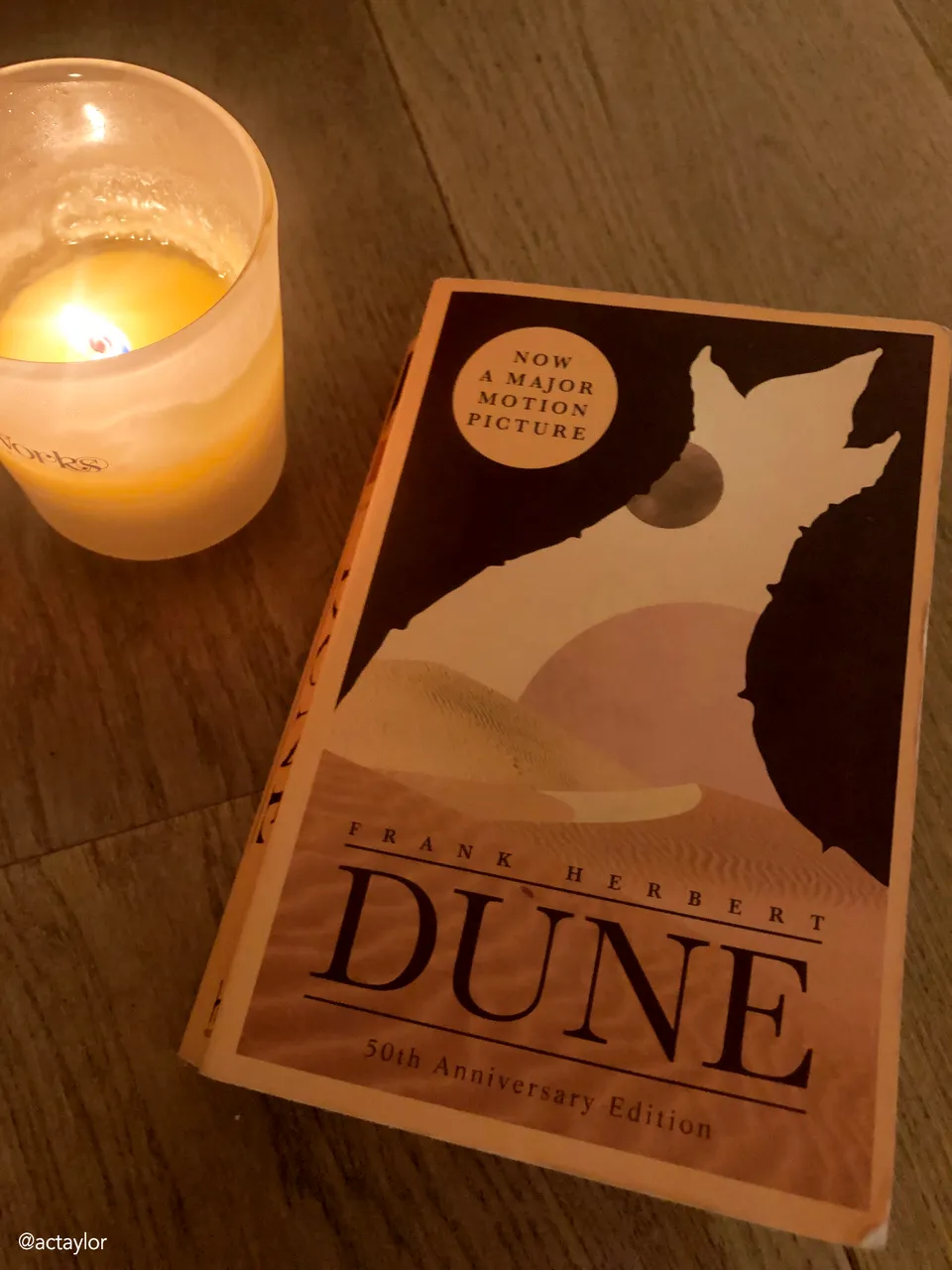I’ve decided to set myself a challenge... Tired of complaining about how “I wish I could find the time to read”, I’ve simply, well, made time. Carved it out of the daily grind. Whether in cutting down meal-prep, reading whilst commuting, quiet nights in, turning away unnecessary projects... It’s actually that easy. Requires ten minutes a day at the very least. Ofttimes I’m kept up till the early morning hours, but… alas, this is a sacrifice I am willing to make. I have too many bloody books. No, really.
My aim: read ten books this year, providing short reviews for each. I’ll record them in the chart below, which I'll add to with every read.
| Date complete | Title | Author | Rating (1-10) |
|---|---|---|---|
| 03.04.24 | Dune | Frank Herbert | 8.5 |

Started strong with “Dune” by Frank Herbert. Only science fiction can machinate Machiavellian intrigue with elements of cultural and historical development, mythology, religion, politics, imperialism, environmentalism, military, economics, power, and suffering. The text raises the question of whether humans should exercise their power to manipulate the environment, as well as the moral question of manipulating nature – such as with the issue of the gene pool. And Dune’s undercurrent is a cautionary tale about ambition and the corrupting influence of power.
The text differs greatly from the film – especially in the case of Chani. The key change being the elimination of her first pregnancy, and the child’s ultimate death at the hands of the Sardaukar. The second greatest change is the passage of time – Paul’s integration into the Fremen and entrance into “adulthood” takes a few months in the film but curtails two years in the book. And the birth of Alia, Paul’s sister… leads to a significant plot-twist in the Baron’s demise. She is a powerful character in the book’s overall narrative. But I’m not here to compare the film to the book – I’m reviewing the latter.

The book has difficult passages, confusing in its unexplained hints and allusions. References to sci-fi barely feature, except in small side-comments about space navigation and weaponry. Having said that, interestingly the weaponry did turn against its people in the end… Hm. The progression of core characters is very minor – Stilgar, I believe, transforms the most… from friend to worshipper, as Paul gravely notes in the book’s last pages. A large part of the text is written in thought-form, which intrigued me. So, the passages became very tangled in that characters were unaware each other’s motives, acting often in unwitting conjunction with one another - but occasionally in juxtaposition. The reader has full access to all thoughts as well as actions. Paul Atreides’ inner dialogue, for example, gets subtly darker and less hopeful as the tale draws on, and his God-presence triumphs over his own abilities to subdue it, surmising that in essence people are uncontrollable en-masse but standing firm and not succumbing to ego at the bequest of the populus is true strength… but the strength of Paul’s self-awareness is evident in the first chapter. And he subtly abuses that power in the end - by not registering humans as individuals, but pawns.
Even with the critique, “Dune” is a tale that I couldn’t put down - hence the 8.5/10 rating. Grateful for my recent travels up north, which had me taking back-to-back train journeys with little to do but read. Even with the lack of character development and undisputed God-complex, it was the worldbuilding that had me hooked. The ecology of Arrakis, the history of the benegesserit, the biology of Shai-Hulud, the OC bible. All very deep, visceral, more sci-phi(losophical) than anything, and such modern concepts for Herbert’s time…
Happy reading, Hivers. 📚
One down, nine to go.
Disclaimer
Blogger: @actaylor
Photographs: unless otherwise noted, all images were taken by me with an iPhone 8